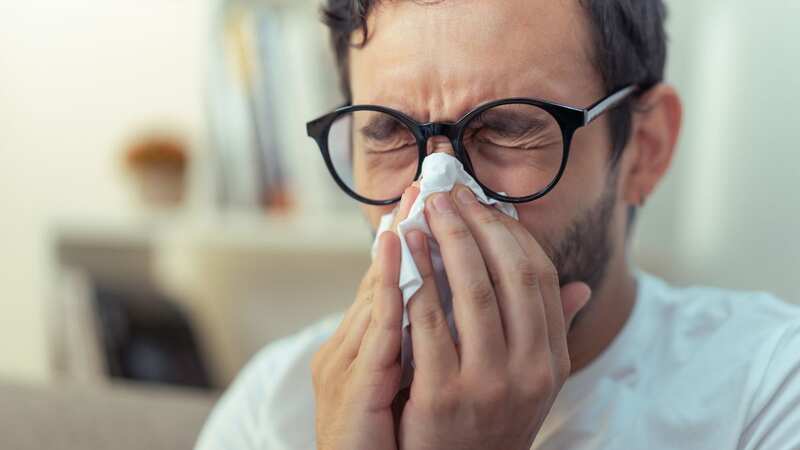Doctors reveal 5 damaging things that can happen if you hold in a sneeze

We often find ourselves trying to hold in a sneeze for fear of spreading germs in a public place or to avoid making unwanted noise in a quiet environment. But did you know that by doing so, you risk causing serious harm to your body?
A doctor has revealed several horrific ailments that can stem from concealing your "atishoo". Dr. Theresa Larkin, associate professor of Medical Sciences at the University of Wollongong in Australia, warns stifling your sneeze can dangerously transmit pressure to other areas of the body.
Indeed, closing your mouth or nose increases the pressure in your five to 20-fold. "It can damage your eyes, ears or blood vessels," Dr Larkin told The Sun. "Though the risk is low, brain aneurysm, ruptured throat and collapsed lung have been reported."
READ MORE : Gut health: Nine myth-busting tips to get your gut in top shape for winter
Here we look at five grim scenarios that can develop from holding in your sneeze.
 Teachers, civil servants and train drivers walk out in biggest strike in decade
Teachers, civil servants and train drivers walk out in biggest strike in decade
Aneurysm
Although its rare, a build-up of pressure in the face can result in a brain aneurysm. According to the NHS, this occurs when there is a bulge in a weakened blood vessel. A burst blood vessel in the brain can lead to blood seeping around it in the skull, which is seriously life-threatening. Doing so can cause significant brain damage, proving fatal in around 60 per cent of cases.
Throat rupture
In 2018 a British man ruptured his throat as he tried to stop himself from sneezing. In the wake of his ordeal, the BMJ reported that by clamping his nose and mouth pre-sneeze, the pressure ripped through his soft tissue. It left the 34-year old in intense pain and barely able to speak or swallow. The man later claimed he have felt a popping sensation in his neck, which soon began to swell.
Collapsed lung
Stifling a sneeze may leave you feeling with a sense of uncomfortable fullness in your chest. Dr. Jason Abramowitz, an otolaryngologist at Allergy Associates in New Jersey, explains that this due to putting pressure on the diaphragm - the muscle in the chest that helps us breathe.
Again, although the likelihood is small, there have been reports of too much air and pressure becoming trapped in the diaphragm. Medically, the condition is known as a pneumothorax when air is trapped between a lung and the chest wall. When only small amount of air is involved, the issue can normally resolve by itself. Larger amounts, however, can result in death if untreated.
Ear infection
Holding in a sneeze during bouts of common cold or flu can result in a middle ear infection. This is because sneezing helps to clear your nose of anything that shouldn't be there - most importantly, bacteria. Pushing bacteria-filled air or mucus back into the middle ear can cause infection, reports the Cleveland Clinic.
Facial damage
The holding back of a sneeze has the potential to cause capillaries in the eyes, nose and eardrums to burst. This can result in superficial damage to the face in the form of red blotches, according to Dr. Abramowitz.
"You might see a red spot on the eyeball or even have a small nosebleed," he explained. "In more severe cases, it can also cause your eardrum to pop [rupture]." Such an injury tends to heal within a few weeks, but has been known to cause permanent hearing loss.
Read more similar news:
Comments:
comments powered by Disqus

































